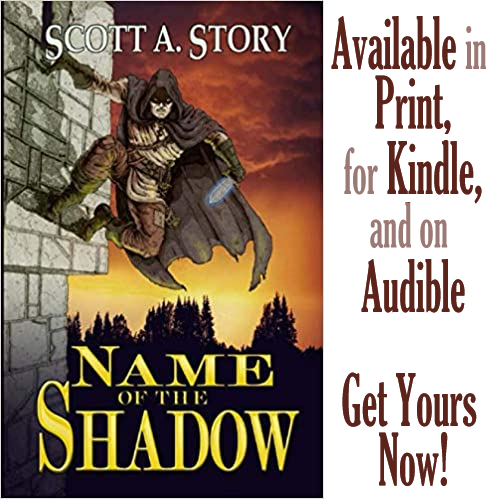Urban Terminology
Abbey/Monastery—Community of monks
Ale House—Sells ale, often out of a house, but not food
Alley—Aka an arcade or close, a small side street
Almshouse—House to shelter the poor
Anchorage—Place out in harbor where ships my anchor
Aqueduct—Structure that carries water from distant source
Avenue—Street that includes trees or buildings on both sides
Bailey—Aka great bailey, a road that follows a curtain wall
Barbican—Fortified gatehouse much like a small castle
Basilica—Major cathedral with important relics
Bastion—Also called a mural tower or bulwark, a projected defensive tower that provides defensive coverage
Bathhouse—Public bath, sometimes also called a stew
Bell Tower—Freestanding bell tower for local time-keeping and civic pride
Belvedere Tower—Tower with beautiful view
Boulevard—Wide urban street in with trees or greenery on both sides, and often a median down the middle
Brewhouse Mill—Mill that powers a brewhouse
Bridge—Raised platform for traffic across river, ditch, or similar impediment
Brothel—Aka a stew, place to hire sex workers
Byway—Secondary road
Canal—Artificial waterway built to transport goods
Castle—Aka Tower, a fortified home or structure
Catacombs—Tunnel system devoted to internment for the dead
Cathedral—Church with a bishop’s cathedra (seat or throne)
Causeway—Raised path for travel over marsh or similar rugged terrain
Cemetery—Hallowed ground to bury the dead
Chancery—Office space
Chantry—Endowed chapel or altar for prayers for the chantry founder’s soul
Chapel—Small worship structure
Chapter House—Meeting house usually in chapel or church
Charnal House—Structure where exhumed human remains are stored
Cheap—Aka market for general goods
Church—Place of worship, usually Latin cross plan with nave, transept, and alter all east orientated
Church Cemetery—Cemetery attached to a church
Cistern—Structure to catch and store rainwater
City —Settlement with a seated bishop and cathedral
City Ditch—Defensive ditch that runs outside and parallel to the outer wall
City Gate—Aka city bar
City Green—Undeveloped ground within settlement for public use and sometimes for communal gardening
Clocktower—Tower housing large clock for regulating town business
Cloister—Covered walk around a court for monks and canons
College—School of higher education and sometimes part of a university
Columbarium—Aka cineriam, building to house crematory urns
Commemorative Cross—Similar to Eleanor Crosses, monument commemorating funerary route
Common Area—Lands held by the community in common
Communal Oven—Provided by lord but compulsary use at a fee
Concentric Wall—Two defensive curtain walls arranged in parallel
Cook shop—Sells over-the-counter fast food
Corpse Road—Haunted path or private street between church and cemetery
Corroidary Hospital—Paid hospital for the retired
Counting House—Bank and exchange
Court—Road with no throughway that ends in a loop or cul-de-sac
Court House—Building dedicated to legal courts that sometimes hosts multiple jurisdictions
Covered River—River that has been enclosed, buried, and now runs under the street
Craftsman’s Townhouse—Slim urban house with ground floor shop, first floor home, and second floor warehouse
Crane—Wheel-powered crane for offloading and loading port goods
Cross—Open-air street pulpit for preachers and speakers
Curtain Wall—Outward-facing defensive wall
Custom House—For collecting custom duties
Deanery—Ecclesiastical dean’s office and residence
Deer Park—Park enclosed with sharpened stakes to keep deer in
Ditch—Defensive barrier like a moat but without water
Dock—Platform (floating or on piles) to load and unload boats
Dorter—Religious dormitory
Double Moat—Concentric moats that run in parallel
Drawbridge—Retractible bridge for defense or to allow tall ships to pass
Drive—A winding road shaped by natural features such as a lake or mountain
Embankment—Raised wall to prevent flood or straighten a waterway
Exchange House—Open-floored but roofed building for merchants-only stock exchange
Fairground—Yearly trade fair usually held in a town green or common area
Ferry—Boat that transports traffic across a body of water in the absence of a bridge
Fish Market—Specialty fish market
Fishpond—Pond dedicated to aquaculture and fish
Floating Crane—Wheel-powered crane mounted on a barge
Floating Mill—Floating water-powered mill
Flour Mill—Mill for grinding grain into flour
Ford—Shallow point in waterway that may be traversed on foot
Fountain—Aka pant, a reservoir for supplying community water
Friary—Community of Friars
Gallery—Narrow open balcony or platform running the length of a wall
Gaol—Aka prison, jail, or turn, it is often located in the bastion or sometimes a free-standing structure
Gate—Access and exit point
General Market—General variety market usually held weekly
Grain Market—Speciality grain market
Grammar school—Free education, often attached to church or free-standing
Great Conduit—Underground channel for bringing in settlement’s drinking water
Great Gate—Primary city or castle entrance
Grove—Roadway that features a group of trees standing together
Guild Hall—Business, administration, and feasting hall for each livery guild
Hermitage—A hermit's dwelling place usually secluded
Highways—Principle cross-country roads (‘way' derived from Latin 'via')
Horse Market—Speciality horse market
Hospital—Provides hospitality for travelers and free healthcare
Hostel—Aka xenodochium, a resting place for travelers
Hovel—Overcrowded urban home or apartment for the working poor
Hunting Lodge—Mansion built for hunting parties
Hythe—Landing place, port, or wharf
Inhabited Bridge—Bridge lined with houses, shops and chapels on both sides
Inn—Rents rooms to travelers and may or may not include a tavern
Inner Gate—Gates connecting two city wards, or outer/inner bailies
Jetty—Long, narrow structure that protects coastline from waves
Jettying—Buildings that extend out, over the road more with each floor
Jewish Cemetery—Cemetery devoted to Jewish graves
Lane—Narrow urban way between walls or buildings, or a narrow rural street
Library—Book collection at major church university
Lighthouse—Warning signal to aid navigation and safety
Livestock Market—Aka stocks market for selling animals
Lodge—Members-only club and meeting place
Lych Gate—Roofed open structure at cemetery gate
Marina—Docks for mooring small and medium sized boats but not large ships
Market Cross—Aka buttercros, a large freestanding structure or cross marking a market's location usually in town square
Market Hall—Large, open-walled roofed structure for some weekly markets
Market Town—A town with a weekly market differing from a village with no market
Marsh—Low, wet land that is often overgrown
Meat Market—Speciality meat market
Militant Monks Cemetery—Cemetery devoted to a religious order of militant monks
Mill—Water-powered mill
Millpond—Reservoir for water-powered mill
Minster—Large church built with a monastery, may or may not be a cathedral
Moat—Defensive artificial water feature
Monks' Cemetery—Cemetery devoted to monks
Mosque—Muslim holy site
Navigable Moat—Moat tied into nearby body of water often including a private dock
Necessary House—Aka an ordinary, latrine block, house of convenience, public urinal, or public toilet
Notice Board—Boards mounted in city square for public use
Oratory—Small chapel for private worship
Orchard—Land planted with fruit trees
Orphanage—Housing for orphans and unclaimed children
Ossuary—Aka Ostuary, a storage space for skeletons or human bones
Parish—Basic ecclesiastic land division
Park—Enclosed area devoted to hunting, gardening, and entertainment
Peculiar—Private church not under local bishop
Pest House—Quarantine space for communicable diseases
Petty/Petite—Foreign community (Petty Wales for Welsh, etc.)
Place—Road with no throughway
Plaisance—An ornamental pleasure garden for entertainment
Pond—Body of water smaller than a lake that may be either natural or artificial
Port—Maritime facility with one or more docks for loading/offloading
Portway—Road leading into ports or market towns
Postern Gate—Small side gate
Priory—Monastery for clerics under a prior
Privy Garden—Private garden
Public Park—Aka a promenade, an open area for leisure
Race Track—Area for horse racing, often in street, town square, or a dedicated field
Reclaimed Land—Land reclaimed from river, lake, or sea
Reservoir—Artificial lake usually made from dammed up river
Ringed Hall—Perhaps a great hall arranged in circular fashion, such as Edward III’s House of the Round Table at Windsor
Rise—Roadway going to a higher place or position
River—A major waterway
Road—Any street that connects two points
Sea Postern—Postern gate that opens to docks or sea
Shambles—Building or street set aside for butchers
Shipyard—Aka boatyard where vessels are built and serviced
Simples Garden—Aka an herbal or herb garden
Sluice—Watergate for raising and lowering water level for canal vessels
Sports Grounds—Space set aside for sports like tennis, football, etc.
Spring—Fresh water source
Stage—Raised area devoted to mystery plays, minstrels, and entertainers
Stocks & Pillory—Place for scaffold, gallows, stocks, and other punishments often in town square
Storehouse—Aka warehouse, a storage facility
Strand—Road along beach
Stream—Aka brook, a minor water course
Street—Street or road within or connecting a settlement
Synagogue—Jewish holy site
Tavern—Establishment that serves wine and some food
Temple—Jewish synagogue, or Templar church
Tenement—Single structures that contains Individual residences or apartments
Terrace—Road that runs along the top of a slope
Theater—Playhouse for bawdy, secular dramas and entertainment
Tide Mill—Mill powered by tidal rise and fall
Tithe Barn—Aisled barn for storing and collecting rents and fines
Tournament Ground—Area for tournaments, could be a street, town square, market, bridge, or open field
Tower-House—Slim, standalone square tower up to 210’ tall for rich owners
Town Hall—Government center that is often a unified guild hall
Town Square—Aka plaza, an open public space surrounded by businesses, multipurpose common area for fairs, markets, races, celebrations, etc.
Triumphal Arch—Monumental arch over a street
University—Collection of colleges devoted to higher learning
Urban Palace—Extravagant townhouse of prodigious size and comfort
Vicarage —A vicar’s residence and part of his benefice
Village—Settlement without a weekly market, guildhall, monastery, or friary
Vineyard—Land planted with grapevines
Walled Causeway—Causeway protected by defensive walls
Walled Garden—For wealthy elites
Ward—Aka quarter, a city neighborhood that is sometimes walled off
Wark—Defensive work
Water Castle—Castle surrounded by a natural water feature like a river moat or on an island
Water Supply Pipes—Lead pipes that supply town’s fresh water
Watergate—Defensible gate for letting vessels access a town or castle
Watermill—Mill powered by running water
Way—Side street off a road
Wealthy Townhouse—Expensive urban home with gate and inner courtyard
Well—Water sourced by digging down to water table
Well House—Structure housing a well
Wharf—Aka pier or quay, a level area on raised pilings for ships to load and offload goods
Windmill—Wind-powered mill
Wool Hall—Large building where incoming wool is weighed, assessed for tariffs, and counted
Workhouse—Place for food and shelter for the poor who were expected to work for their upkeep
Workshop—Small industrial complex devoted to specific craft









Comments